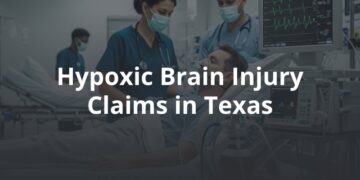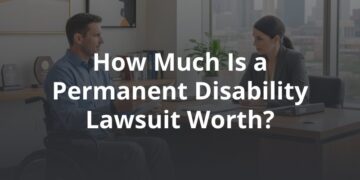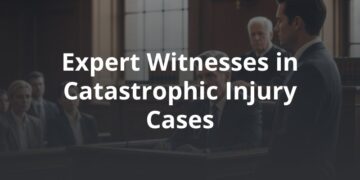When a loved one dies because of the recklessness, carelessness, or negligence of another, a lawsuit can be a way for families to enact justice for their loss. But when faced with the kind of devastating accident that results in your decision to contact a wrongful death attorney, it may be difficult for families to think about more practical matters, like taxes.
An experienced wrongful death attorney will understand the impact that the IRS code has on how your lawsuit should be filed in order to maximize the amount of compensation available to you. Leveraging the knowledge of a lawyer will help you avoid the stress of financial hardship throughout this difficult time.
How Are Wrongful Death Settlements Determined?
Wrongful death lawsuits may include three types of monetary awards, which fall into two categories: pecuniary and non-pecuniary. Pecuniary losses are damages that can be quantified, such as the deceased person’s earning capacity. Non-pecuniary losses are less tangible, such as pain and suffering. Another way of thinking about these types of damages is as economic, non-economic, and punitive.
Economic damages are awarded in order to compensate for
- Loss of household income or inheritance
- Funerary expenses
- Medical costs associated with treating the deceased for the incident prior to their passing
Non-economic damages are awarded to compensate for
- Mental anguish
- Loss of emotional support
- Loss of companionship
Punitive damages, unlike economic and non-economic damages, are specifically designed to punish the defendant for conduct that resulted in the death of a loved one. These damages are intended to provide retribution for the victim as well as send a message to the defendant and to potential future defendants in similar cases that their behavior comes with direct consequences.
While there is no amount of money that can replace someone you love, FVF’s attorneys will investigate your case thoroughly and use the facts of your case to fight for the wrongful death recovery award you deserve. FVF accepts only cases we believe we can add substantial value to — enough to pay for the cost of fighting the case and then some.
Do You Pay Taxes on a Wrongful Death Lawsuit?
Regardless of whether your wrongful death case compensation is awarded at maximum value in a pretrial settlement or taken to trial, a wrongful death compensation award is not considered income and therefore is not taxable.
However, because wrongful death lawsuits in Texas may include damages awarded for both compensatory (economic and non-economic) damages and punitive damages, it is important to understand where the IRS differs on the two and why it is important to be aware of the impact of tax law — especially on how your attorney can best structure your claim.
A few important notes about personal injury case taxation:
- Compensation for claims with their origin in physical injury or sickness — including recovery for lost wages, future earning capacity, pain, suffering, mental anguish, loss of consortium, and other compensatory damages — is not considered gross income and is therefore tax-free.
- Punitive damages are taxable to their full amount (except in states where only punitive damages are available, but this does not apply to Texas).
- Any portion of the award that represents accrued interest on the award is taxable, which may impact some cases with long appeals processes.
- Prior out-of-pocket medical expenses that were previously claimed as tax deductions are considered taxable.
- Recovery awards are taxable in their full amount — before any legal fees are deducted, and attorneys’ fees are not tax-deductible.
Changes in 2017 to the tax code have made it more difficult for wrongful death lawsuit plaintiffs to keep the full amount of their recovery — whether awarded by settlement or by judgment — for themselves. In order to avoid surprise tax bills and further financial stress, you should understand which taxes will need to be paid on the money awarded.
How Can Wrongful Death Beneficiaries Minimize Tax Consequences?
While damages are taxed the same regardless of whether or not they are awarded through settlements or judgments, certain tools are available to wrongful death beneficiaries to minimize or defer tax consequences.
- Ensure allocation of damages: In Texas, many wrongful death claims involve both compensatory and punitive damages. Your attorney should ensure that the settlement or judgment documents include having the judge sign off on what amount of the total recovery falls into which category. These allocations are rarely ignored by the IRS should a tax dispute arise down the road.
- Consider the impact of delays: Prejudgment interest compensates a plaintiff for lost use of the (eventually) awarded money during the time it takes to be awarded while post-judgment interest accrues while awaiting payment from the defendant. You may end up with a completely tax-free settlement or judgment, but any prejudgment or post-judgment interest that accrues, even on compensatory damages, is taxable.
- Think long-term to minimize taxes: Depending on the value of your compensatory and punitive damages, whether the case is on appeal, or any other facts of the case, it may be an attractive option to accept an offered settlement and avoid the additional tax burden of interest that may accrue throughout a longer timeline. Additionally, while there is no distinct difference in taxation for a lump-sum payout versus a structured settlement, the tax advantage over time of structured settlements may be worth considering.
Plaintiffs who receive lump-sum payments, whether through a settlement or judgment, may decide to maximize the long-term value of the money by investing it. However, the money from a wrongful death recovery is only tax-free when it comes directly from the annuity funded at the time of the settlement. Recovery money that is used to purchase stocks, real estate, or fund other investment types is no longer protected from tax exclusions. Beneficiaries should consider their long-term needs and goals for their recovery.
The unique circumstances of each case — and each family’s financial needs and situation — will determine the best way for wrongful death beneficiaries to mitigate their tax consequences, especially in high-value cases.
How Can a Wrongful Death Attorney Help?
Wrongful death claims are complex, so it is crucial that you are well informed and have a strong legal team at your side throughout the process to ensure that your rights are protected.
The strategies your legal team will use to show the defendant’s responsibility for your loved one’s death is important in calculating damages correctly to maximize the amount of recovery.
FVF operates on a contingency fee basis, which means our fee is a percentage of the gross (total) recovery. By being transparent about our fee, we make sure that you always know what to expect with regard to your total recovery award, and we can help you understand the best way to maximize the value of your case. This even includes anticipating the amount of taxes that will come due.
We know that the legal complexities of losing a loved one add confusion and distress to an already difficult time. That’s why we offer free, no-commitment case consultations — so that you are empowered to make decisions about your future. Our goal is for you to leave your conversation with FVF less overwhelmed and more confident about your next steps, whatever they are.
Contact us today to schedule your free consultation with a wrongful death attorney in Austin whom you can rely on to have your best interests in mind.








